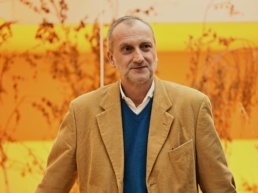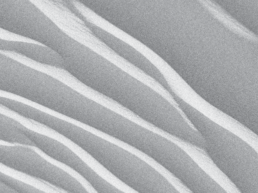FLAD and Ciência Viva will rejoin for the second edition of the Atlantic Junior Award – a science award for high school students, which will reward the winning team with a trip to the United States. The Atlantic Junior Award aims to promote the taste for science and technology, and the interest in the Atlantic among the youngest.
Applications for the Atlantic Junior Award are now open. FLAD and Ciência Viva – National Agency for Scientific and Technological Culture, launch the second edition of this award that aims to promote scientific and technological culture through the valorization of the Atlantic as a natural system and its role in the sustainability of the planet and in society. The Atlantic Junior Award follows the FLAD Science Award Atlantic and aims to promote in the younger people the taste for technology, from a perspective of teamwork and learning by doing, giving visibility to its role in understanding the Atlantic and its importance for the sustainability of the planet and for the communities around it.
The competition will reward practical applications that facilitate the monitoring of the Atlantic and its ecosystems or that promote the sustainable use of its resources, consisting of the realization of a prototype, instrumented model, or biotechnological product.
Prize:
The 3 best projects will be awarded the following prizes:
1st place: winning team trip to the USA, plus a cash prize of €2,000
2nd place: cash value of 2 000 €
3rd place: cash value of 1 500 €
The monetary values involved in the prizes are attributed to schools in the form of equipment and materials necessary for the development of new projects in the technological area in the following school years, namely in the competition for the Atlantic Junior Award.
Themes for the 2022/2023 edition:
- Marine renewable energies (Example: devices to harness wave and tidal energies);
- Marine robots with sensors to measure variables such as salinity, temperature or pH;
- Innovative vessels (Example: remote-controlled solar vehicles);
- Technologies and processes that contribute to eliminating or mitigating marine pollution;
- Biotechnology (Examples: medicines, new food products).
Recipients:
The competition is aimed at all secondary schools and vocational education, public or private, in mainland Portugal and in the Autonomous regions of Madeira and the Azores.
Each team, with a maximum of five students, must present gender diversity and will be supported by a teacher/tutor. Each tutor can support a maximum of 3 teams in the competition.
Teams should seek partnerships with universities, polytechnic institutes and/or companies for technical and scientific support.
The winning team of the previous edition is unable to re-register.
Candidacy:
The application will be held electronically until November 30, through this link, with the delivery of the following elements for the selection of the finalist teams:
- Presentation video (maximum 3 minutes) – Presentation of objectives, team members and task distribution;
- Presentation technical document (max. 2 pages A4): -The scientific objective of the project;
- The description of the prototype, model or product;
- Partnerships with universities, polytechnic institutes and/or companies for technical and scientific support;
- Table of expected costs. In case of support from an entity, through, for example, machining or offering a component, its market value should be included in the table.
Jury:
The evaluation will be made by a jury of researchers and secondary school teachers with experience in the relevant areas.
– João Tasso de Figueiredo Borges Sousa, LSTS, Faculty of Engineering, University of Porto
– Maria Manuel Gil, CETEMAR and MARE Pole of the Peniche Polytechnic Institute
– César Marques, secondary and vocational teacher
– Elsa Henriques, FLAD
– Ana Noronha, Ciência Viva – National Agency for Scientific and Technological Culture
The teams with the highest score in the documentary stage of the application will be invited to participate in the final of the Junior Atlantic Award. The result of this selection will be communicated to the teams until December 30, 2022.
Evaluation criteria:
In the documentary phase, the teams will be evaluated by the jury, taking into account the scientific value, technical execution, educational value, teamwork and dissemination to the community, with the following considerations:
- Scientific value and creativity 30%
- Technical execution 30%
- Educational value 15%
- Teamwork 15%
- Dissemination to the community 10%
Final Stage:
The final stage of the Prize will take place at a public event on June 3, at the Pavilhão do Conhecimento – Centro Ciência Viva. In this event the winning teams will be selected (first, second and third places).
We advise you to read the notice of this contest (Notice – Atlantic Junior Award), where you can find all the details about the prize.
The final evaluation leading to the Prize is the sole responsibility of the jury already nominated and the promoters of the competition, based on the above criteria.
The awards ceremony will take place during the month of June at the Luso-American Development Foundation (FLAD).
In the last edition, the 1st prize was awarded to the team of the Professional School of Salvaterra de Magos, who created an autonomous solar-powered surface vehicle to help preserve and improve the conditions of the Tagus River. Meet the winning projects here.
Follow us through this website and our social media to stay briefed about the selection process.
Good luck and see you soon!


